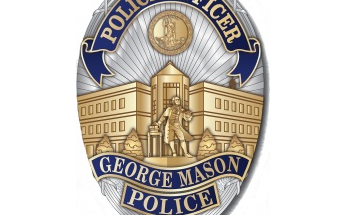Campus and local groups work to make effective campaigns and get students registered despite COVID-19
BY: DANA NICKEL STAFF WRITER
This June, Virginia saw a 40 percent decrease in the number of new voters registered in comparison to June 2016, according to a report from the Virginia Public Access Project. The report indicates that these numbers are up from the drastic decline across Virginia, Maryland and Washington, D.C., recorded in April and May. However, voter registration is down across the country.
Previously, students on college campuses have been encouraged to register to vote through events such as canvassing and tabling. Due to COVID-19 and a switch to hybrid or online learning, these in-person events have been suspended.
Campus Elect, a national, non-partisan organization dedicated to educating college students on the importance of voting, has worked to encourage students to register and vote in every election cycle, but their strategies have undergone major change this year.
The organization keeps its website up-to-date with information on how students can register to vote on their university’s campus.
For state and local elections in Virginia, campaigning during COVID-19 has required adjustments.
Erica Kelly, a junior Government and International Politics major at Mason and newly elected president of the George Mason Democrats, is also working with her team to combat this decline in registration and potential turnout.
Kelly has been working with the George Mason Democrats since her freshman year at Mason in 2018, and she noted the differences in campaign plans and strategies for this election cycle in Virginia.
“I’ve been working on campaigns since high school. I worked on the [Hillary Clinton] campaign in 2016, and I just threw myself into campaign work once I got to [Mason],” Kelly explained.
Kelly continued, explaining her thoughts on running a successful campaign.
“With campaigning, it’s all about the connections you make,” she said. “Because of the pandemic, we obviously aren’t sending our volunteers out to knock doors like we normally would this time of year.”
To make up for that, Kelly explained that the GMU Dems are hosting phone banking events at least twice a week every week between now and Election Day.
According to Kelly, the most active members of GMU Dems are freshmen. She said that she initially was surprised by this fact.
“For [freshman], they don’t know what campaigning with a college chapter looked before [COVID-19],” Kelly explained. “The times that I’ve personally felt defeated because of the campaign, the freshmen volunteers have been more energized to make calls, attend our weekly Zoom meetings and just make sure everyone is ready for Election Day.”
Kelly explained that GMU Dems feels confident that Democratic Presidential Nominee Joe Biden will win Virginia.
“We’ve been focusing our efforts on calling into more competitive states, like Pennsylvania, Michigan, Wisconsin, Arizona and Colorado … we are reaching for independent swing voters for Biden,” Kelly stated.
For Mason students who want to focus specifically on the Biden campaign, a new student-run organization called GMU for Biden has recently formed on campus.
Jordan Harzynski, the founding member and president of GMU for Biden, explained that their mission is to get college students energized about voting for Democrats in November.
Harzynski explained that he feels confident that young people will vote for Biden.
“It’s all about getting young people excited to go and vote in November. That is the key to a win for Biden,” he explained.
For the George Mason College Republicans, member retention is also key to running successful campaigns.
GMU Republicans Secretary Joe Szymanski, a sophomore, explained that the organization is not focused on any particular campaign, but their primary focus is to flip Virginia red.
Normally, GMU Republicans see between 20 and 25 members at their weekly meetings. But Szymanski explained that with the meetings transitioning to Zoom, the attendance has held steady around 18 members.
“It is a bit of a dip,” he explained. “But we’ve actually seen a surprisingly decent amount of new members show up continually at meetings this year.”
To get their members excited to work together this semester, Szymanski explained that the organization is planning to host an outdoor social event for new members to finally meet in person.
“I think it’ll be exciting, and a safe way to meet each other and get to know who we’ll be working with this semester,” he said.
Szymanski declined to elaborate on GMU Reps’ strategy for working on Republican campaigns and policies.
Local campaigns also provide a networking opportunity to Mason students.
Kelly explained that she understood the idea that without face-to-face contact, it could be harder to network with campaign officials and candidates. But she said that her experience has been mostly positive on the campaigns she works for.
“I work for the Jennifer Carroll Foy for Governor campaign, and I’ve had more time to speak to the actual candidate over Zoom than I’ve ever gotten from working in-person,” Kelly explained.
She continued, “Before the pandemic, the candidates didn’t have the time to drive out to a small, volunteer-run event and meet everyone. Now, they do have five minutes to spare to hop on a Zoom call with their lower level campaign staff. So, I’ve seen more of the candidates I’ve worked for and the upper-level campaign staff than I ever had before.”
Fourth Estate will be following progress with every political campaign on Mason’s campus for this election cycle.




